
tvirbickis/iStock/Getty Images
Pepper jack cheese adds a bit of kick to your quesadilla or fajita -- and even serves as a spicy alternative for your cheese and cracker snacks. But pepper jack isn’t something you want to eat to fill you up. It’s not only loaded with calories, it’s also full of saturated fat and cholesterol.
Details on Calories
You’ll get about 100 to 110 calories per ounce of pepper jack cheese, depending on the brand. But most of those calories -- about 80 of them -- come from fat. This means that fat amounts to 72 percent of the overall calories in pepper jack cheese. The rest of the calories come from protein; however, some brands provide a small amount of carbs -- about 1 gram.
The Scoop on Fat
You do need some fat in your diet for vitamin absorption, hormone production and many other functions. However, just 20 to 35 percent of the calories you consume should come from fat, according to the Dietary Guidelines for Americans, 2010. You get 9 calories from a gram of fat, so 44 to 78 grams should be all that you have daily if you follow a 2,000-calorie diet. One ounce of pepper jack cheese provides about 8 grams of fat, which takes up as much as 20 percent of your daily fat allowance, based a 2,000-calorie diet. Plus pepper jack is high in saturated fat. This fat shouldn’t make up any more than 10 percent of your calories, because a lot of it can elevate risk factors associated with heart disease. For a 2,000-calorie diet, you shouldn’t have more than 22 grams of saturated fat daily -- and you’ll get about 5 grams from 1 ounce of pepper jack.
Considering Cholesterol
Too much cholesterol in your diet can raise your low-density lipoprotein, which is the type of cholesterol that clogs up your arteries. The negative effects of dietary cholesterol are only increased if the food you’re eating is also high in saturated fat. You already know that pepper jack cheese is high in saturated fat, but it’s also high in cholesterol, making it a poor choice for heart health. For each ounce of pepper jack cheese you eat, you’ll get approximately 25 to 30 milligrams of cholesterol, depending on the brand. Since you should limit yourself to 300 milligrams of cholesterol daily, according to the Dietary Guidelines for Americans, 2010, that small, 1-ounce portion of cheese takes up nearly 10 percent of your allowance for the day.
Protein Information
The upside of eating pepper jack cheese is that it does offer protein. A 1-ounce serving provides 6 to 7 grams. You need 10 to 35 percent of your calories to come from protein to support growth, muscle function and other biological processes, according to the Dietary Guidelines for Americans, 2010. This equates to 50 to 175 grams for a 2,000-calorie diet. So if 2,000 calories is normal for you, an ounce of pepper jack cheese gives you approximately 12 percent of your protein needs for the entire day. Just keep your serving size small to avoid getting too much fat and cholesterol.
Related Articles

Fat Grams in Cheese

The Nutritional Value of Norwegian ...

Nutrition Facts for Cooked Poblano ...

Nutritional Value of Red-Skin Potatoes
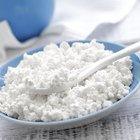
Benefits of Cottage Cheese

How Many Calories Are in a Slice of ...

Is Zinc Good for Hair Growth?

Vitamins for Mental Alertness

What Is the Nutrition for Cranberry ...
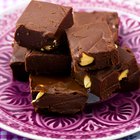
Calories in Chocolate Fudge

Nutrition of Red Snapper Vs. Tilapia

Swiss vs. Cheddar Cheese Nutrition ...
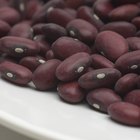
Red Kidney Beans Nutrition
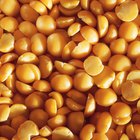
Which Is Healthier, Lima Beans or ...
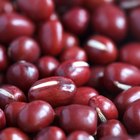
Nutrition Information for Adzuki Beans
Calories in a Cucumber and Avocado Roll

Calories in Cheese Calzones

Bad Effects of Chocolate
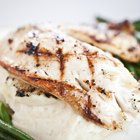
Grilled Mahi Mahi Calories

Asiago Cheese Nutrition
References
- FitDay: Pepper Jack Cheese stick
- U.S. Department of Agriculture and U.S. Department of Health and Human Services: Dietary Guidelines for Americans, 2010
- Sargento: Sargento Deli Style Sliced Pepper Jack Cheese
- My Fitness Pal: Calories in Aldi Happy Farms Pepper Jack Cheese Cubes
- My Fitness Pal: Calories in From Farmer's Market 3-Pepper Colby Jack Cheese
Writer Bio
Melodie Anne Coffman specializes in overall wellness, with particular interests in women's health and personal defense. She holds a master's degree in food science and human nutrition and is a certified instructor through the NRA. Coffman is pursuing her personal trainer certification in 2015.
Photo Credits
tvirbickis/iStock/Getty Images